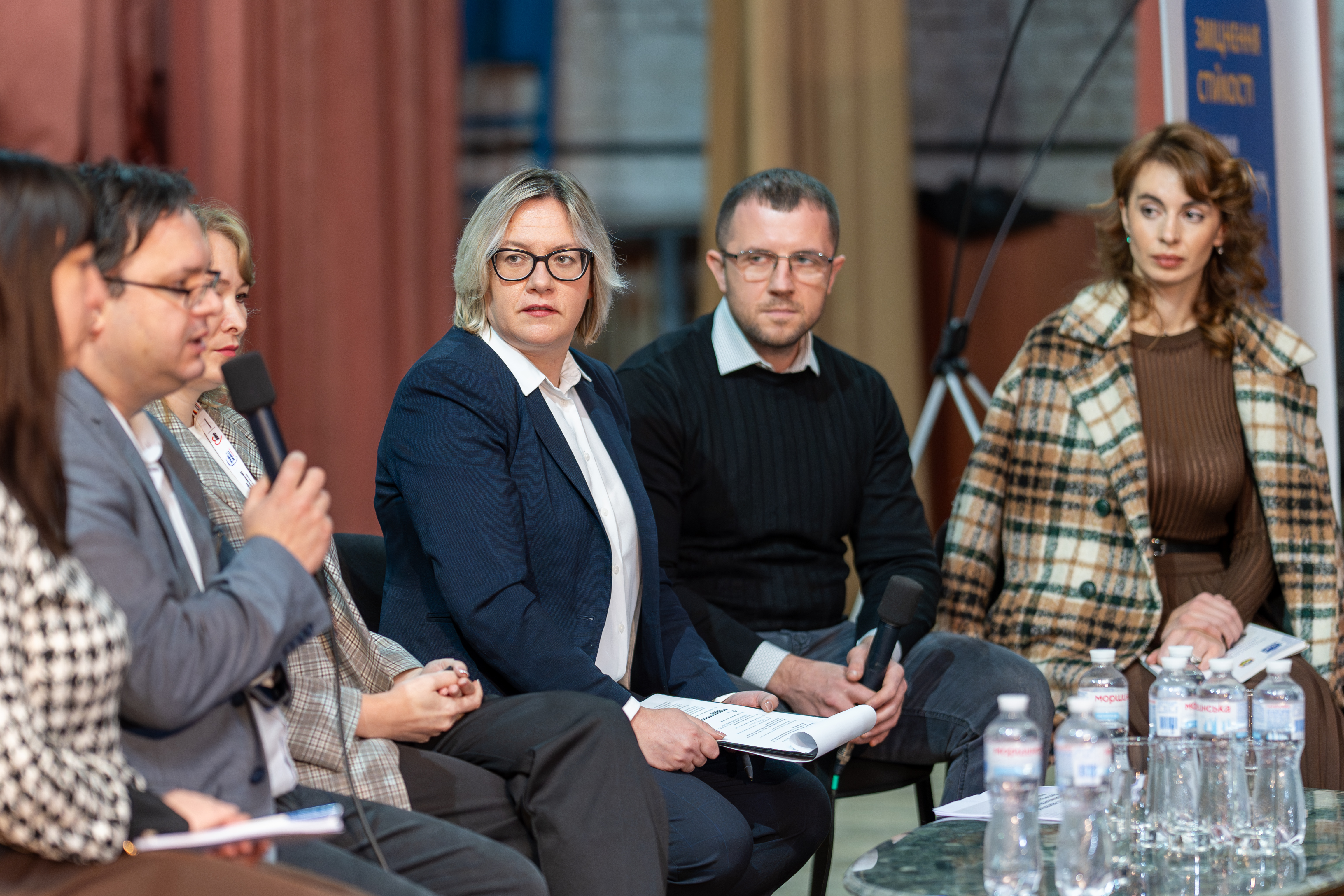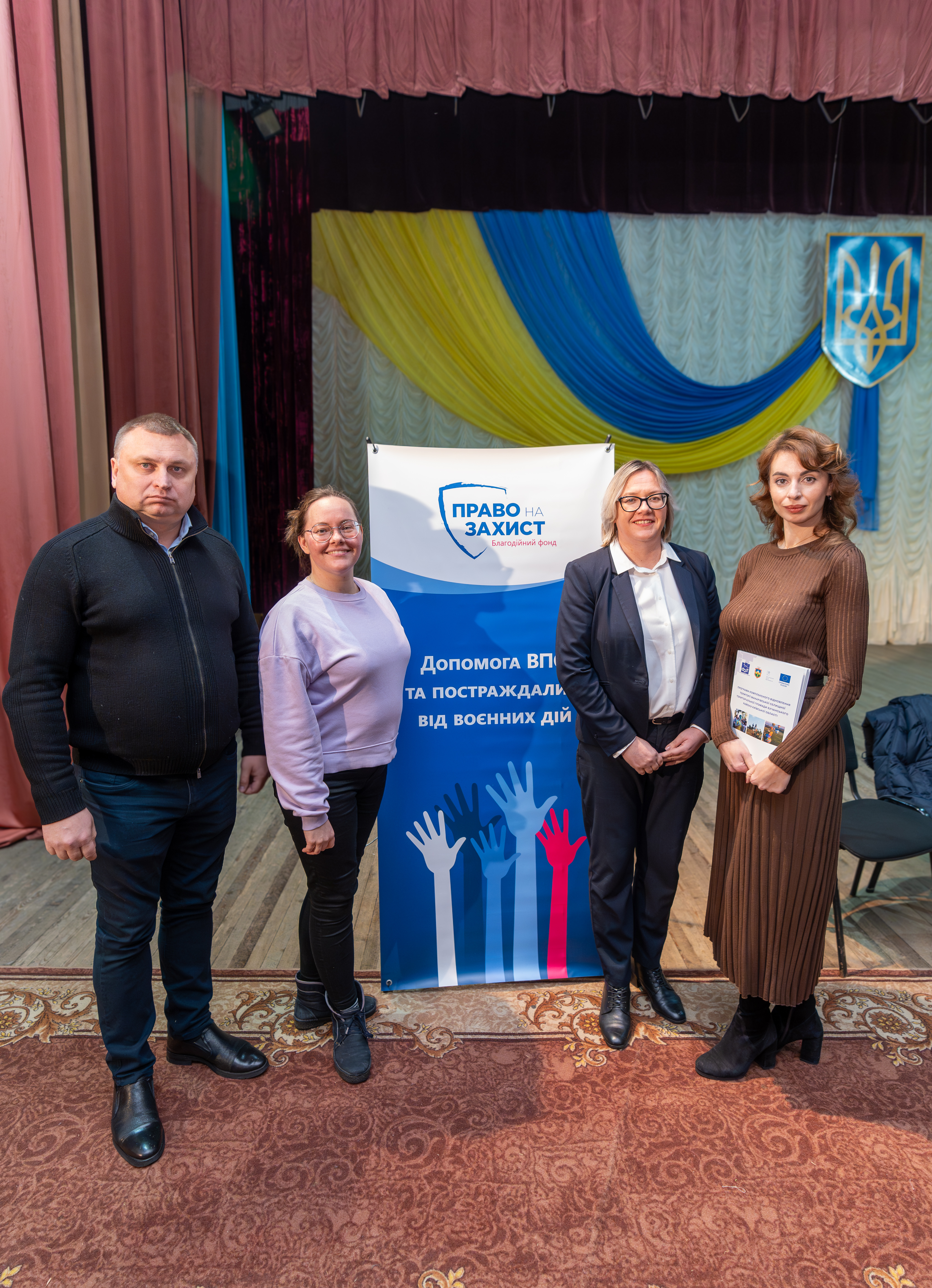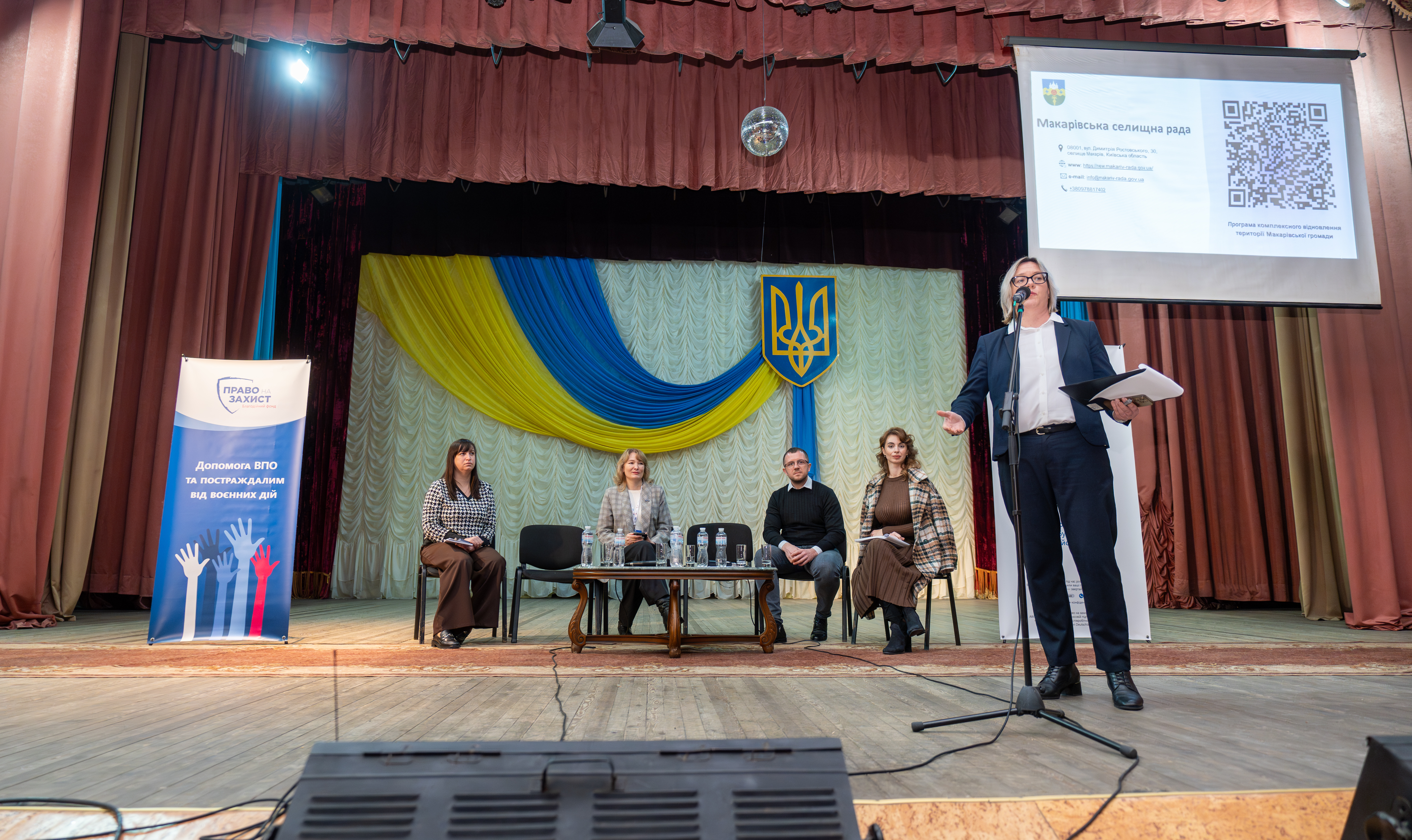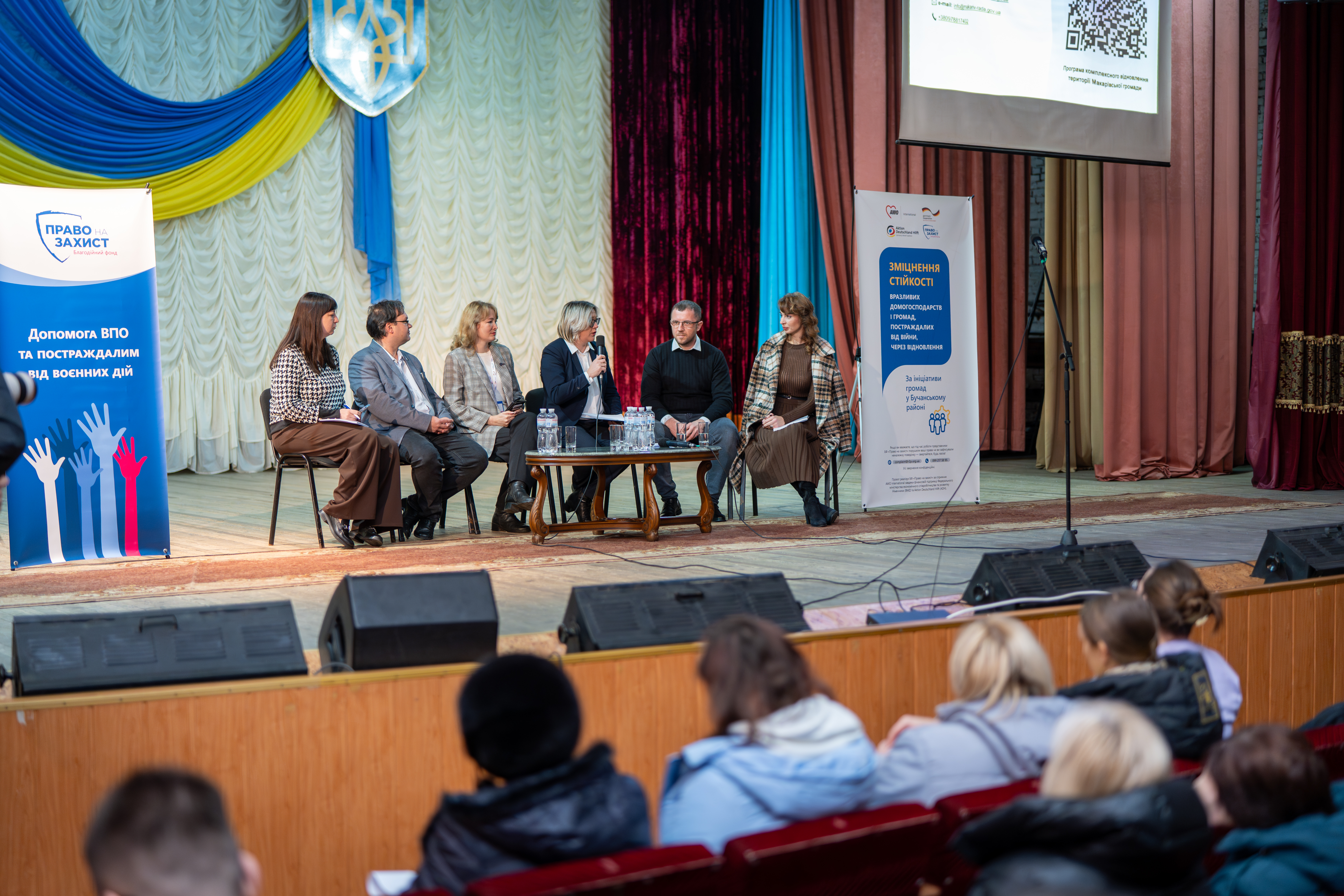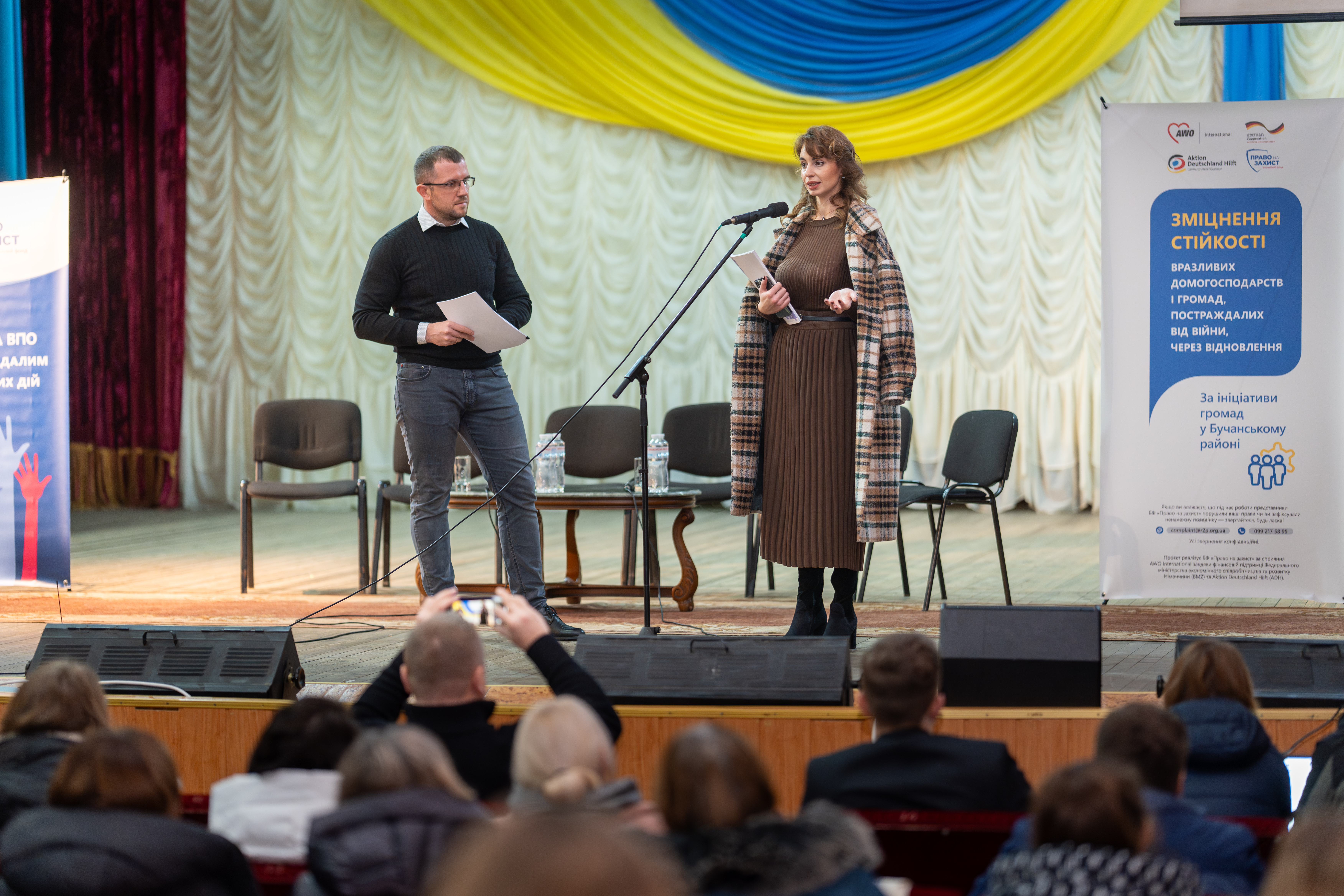-
Unfortunately, nothing was found for your request, you can search for another keyword, or contact us with your question through the feedback form
Search results (25)
All results (25)
Right to Protection Launched a Large-Scale Project to Support Microenterprises, Develop Economic Opportunities, and Establish a Dialogue between Different Groups of People in Kyivska Oblast
January 7, 2025
Makariv, which survived the siege, fierce fighting, and significant destruction during the full-scale invasion, is gradually recovering. At the end of 2024, the village hosted a presentation of the comprehensive hromada recovery plan, Restoring Makariv: Vision, Challenges, Interaction. Right to Protection in cooperation with the Makariv Village Council organised the event.
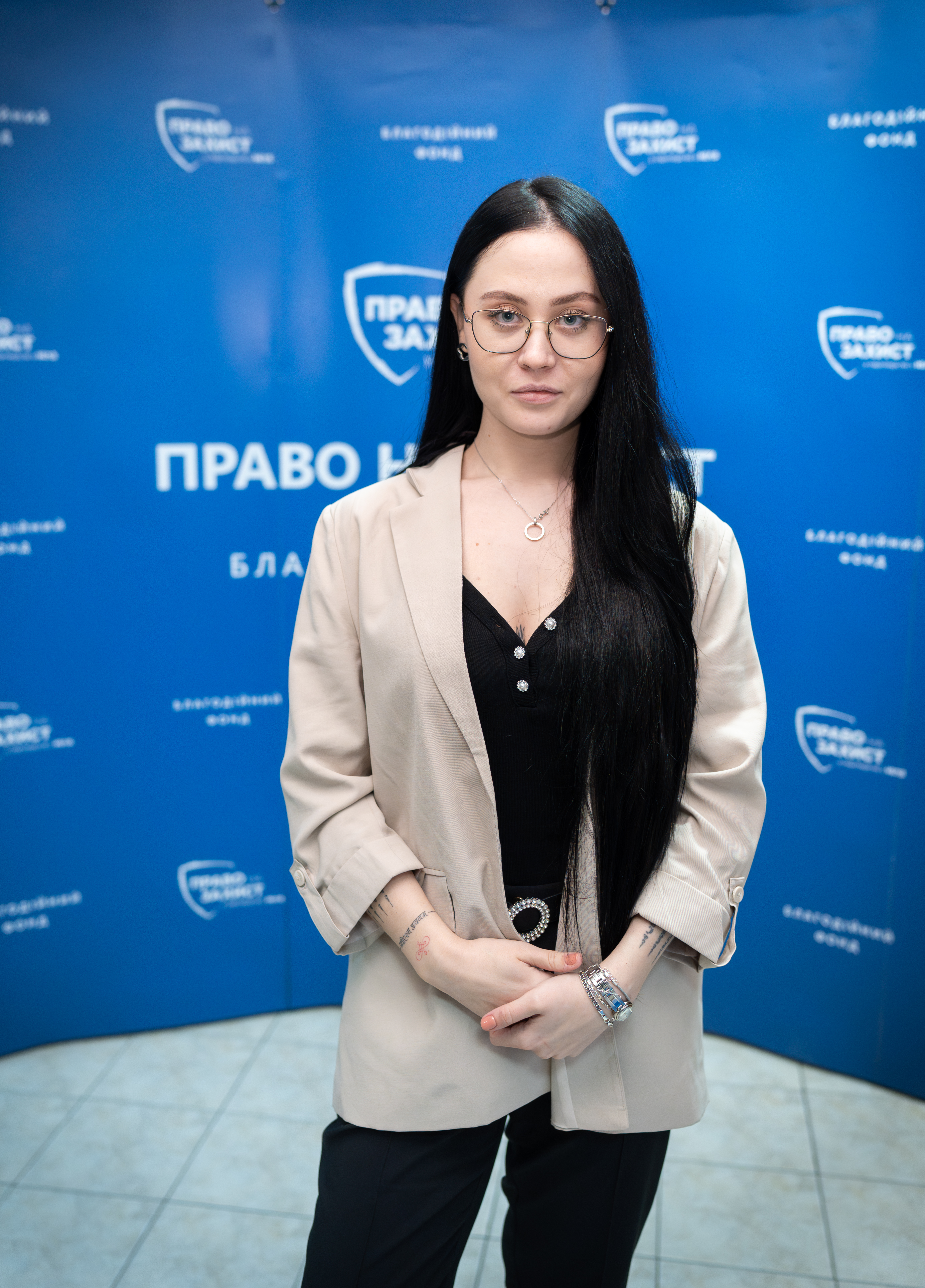
Marharyta Savushkina, Project Manager at R2P
"This project is not only about rebuilding. It is about making the hromada more resilient, stronger, and united. It includes business courses, training programmes, advisory sessions with tax experts, psychological counselling, and a population retraining programme. We also plan to organise a major fair in Makariv for at least 500 participants. This will be a significant event aimed at uniting people, integrating internally displaced persons (IDPs), and building a strong society."
40% of Makariv was destroyed, and today, the hromada is taking the first steps towards rebuilding. The comprehensive plan covers all aspects of its life: infrastructure, barrier-free accessibility, energy efficiency, economy, and social cohesion.
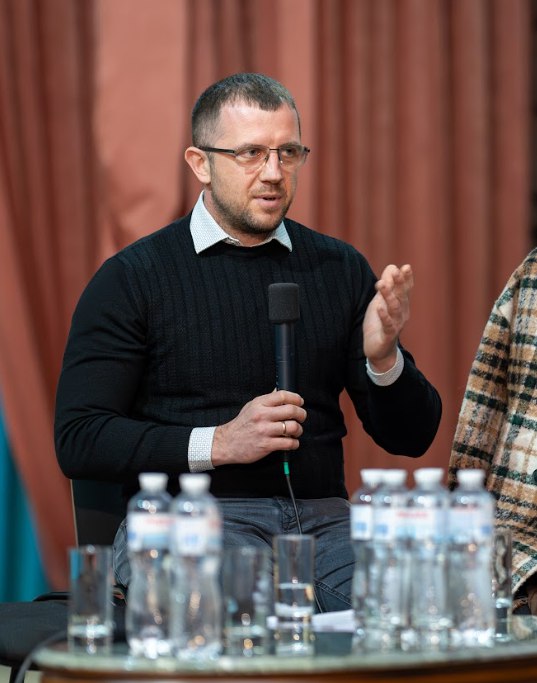
Anatolii Karbovsky, Deputy Head of Makariv Village Council
"This plan systematises and consolidates our efforts, outlining the vectors in which we will move forward. The Comprehensive Recovery Plan is a document that defines who we are, the makeup of our hromada, its features, strengths, weaknesses, the challenges we have faced during the hostilities, and our plans for future development. Importantly, all these plans were developed with input and suggestions from the hromada."
Strategic Directions of the Comprehensive Recovery Plan:
- Makariv as a cultural and business hub.
- Logistics, innovation, and industrialisation.
- Ecology, tourism, recreation, and rehabilitation.
- Agro-industrial flagship.
- Digitalisation and digital transformation.
- Housing and communal services, as well as transport infrastructure.
A key message of the project is recognising IDPs as a resource for growth. The initiative includes organising business courses, retraining programmes, project hubs, and activities to strengthen social cohesion. Special emphasis is placed on supporting micro-entrepreneurship, which drives economic development and is an essential tool for involving residents in the recovery process.
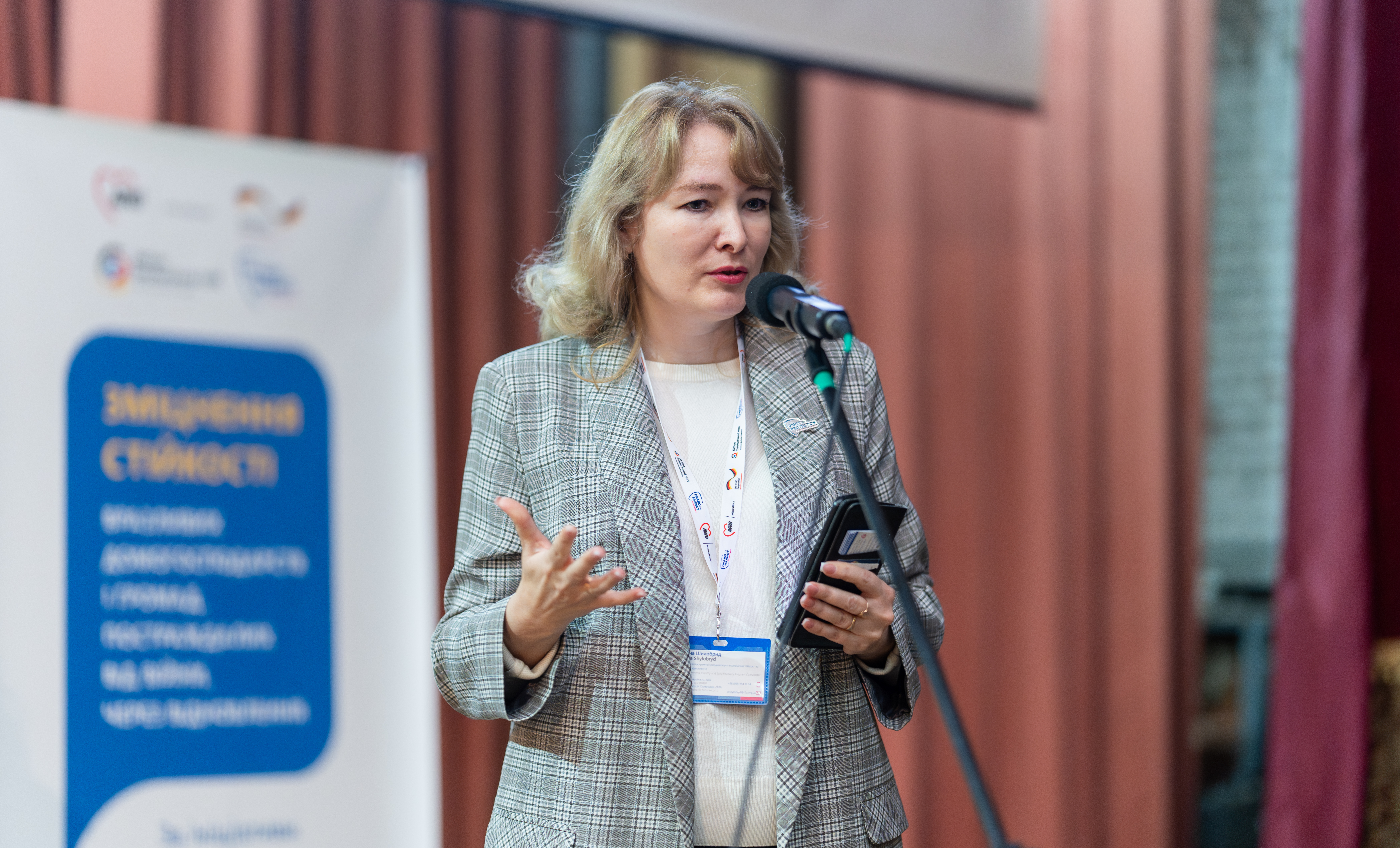
Olena Shylobryd, Deputy Coordinator of the Economic Stability and Early Recovery programme of R2P
"We understand how important it is to support hromadas that have been under occupation and suffered destruction and significant damage. We help them in their quest for recovery and economic sustainability. Therefore, this event aims to inform the hromada residents more widely about the facilities included in the Comprehensive Recovery Plan. Do these measures meet their needs?"
The event brought together representatives of local authorities, experts, the public and government agencies. All participants were pleasantly surprised by the unity of the hromada and the first successful steps in the recovery.
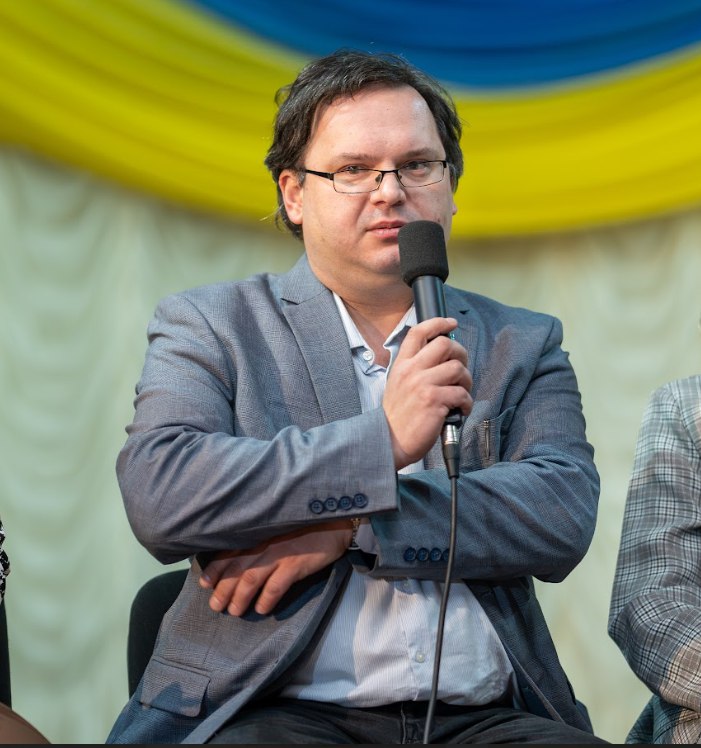
Hryhorii Melnychuk, Representative of the Ministry of Communities and Territories Development of Ukraine
"A comprehensive approach to planning facilitates attracting international assistance, streamlining communication with donors, and building residents’ trust."
An integrated approach to planning allows for attracting international assistance, simplifying communication with donors, and building theresidents’ trust.
The presentation of the Comprehensive Recovery Plan for Makarivska hromada was held as part of the Strengthening the Resilience of Vulnerable Households and War Affected Communities through Community-Driven Recovery in Bucha Rajon project. This initiative is implemented by Right to Protection with assistance from AWO International and financial support from the Federal Ministry for Economic Cooperation and Development of Germany (BMZ) and Aktion Deutschland Hilft (ADH).

